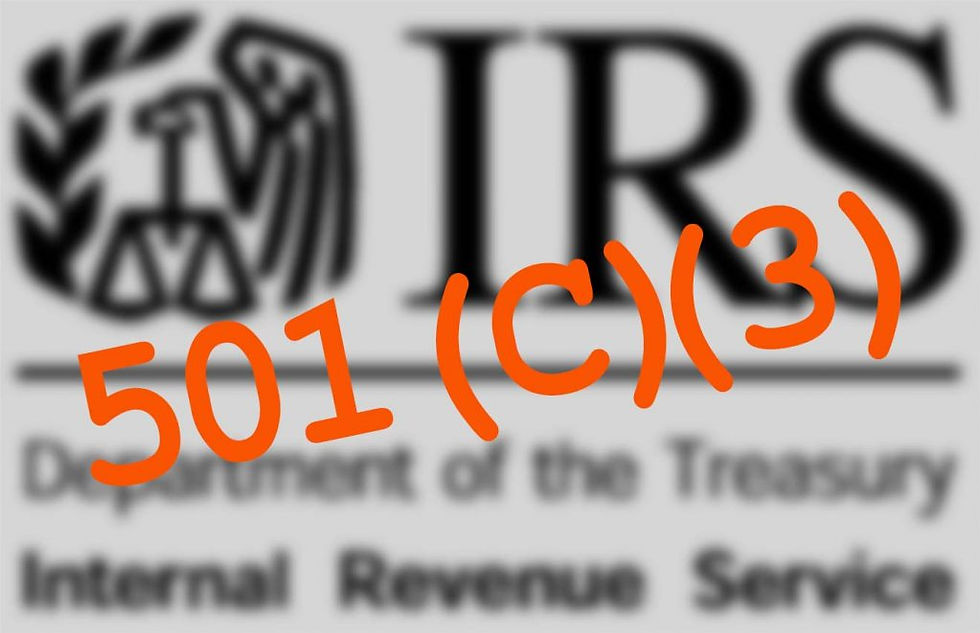What Are the Challenges and Opportunities in Online Education for 501c3 Organizations?
- EZ 501c3
- Jan 4, 2024
- 4 min read
In an era marked by rapid technological advancements and a growing demand for remote learning, 501(c)(3) educational organizations find themselves at a crossroads. Online education has become an indispensable tool for delivering knowledge and skills to a wide and diverse audience, but it also presents a unique set of challenges and opportunities for these non-profit entities.
As we delve into the world of online education for 501(c)(3) organizations, we will explore the key obstacles they face and the exciting prospects that await them in this digital age.
Online education, often synonymous with e-learning or distance learning, has revolutionized the way we acquire knowledge. The COVID-19 pandemic only accelerated this transformation, highlighting the urgency for educational organizations, especially non-profits, to adapt to the digital frontier. However, the path forward is not without its hurdles, and this article will shed light on the challenges and opportunities that 501(c)(3) educational organizations encounter in the online education landscape.

Challenges in Online Education for 501(c)(3) Organizations
Limited Funding and Resources:
Online education demands substantial investment in technology, infrastructure, and skilled personnel. However, 501(c)(3) educational organizations often operate with limited financial resources. This constraint can hinder their ability to offer high-quality online courses and comprehensive support services, potentially limiting their impact on learners.
Competing with For-Profit Institutions:
Non-profit educational organizations face stiff competition from for-profit counterparts, which often boast larger budgets for marketing and technology development. The financial disparity can challenge 501(c)(3) educational organizations' efforts to attract and retain students in the highly competitive online education market.
Digital Divide and Accessibility:
Equitable access to online education is a pressing concern for 501(c)(3) educational organizations. Many students from underprivileged backgrounds lack the requisite devices or internet connectivity to fully engage in online courses. Addressing this digital divide is crucial to ensure inclusivity and equal opportunities for all learners.
Maintaining Engagement:
Sustaining student engagement and motivation within the confines of an online learning environment is a persistent challenge. The absence of face-to-face interactions can result in decreased participation and heightened dropout rates, which 501(c)(3) educational organizations must proactively combat to deliver effective online education.
Quality Assurance:
Maintaining the highest standards of quality and academic rigor is paramount for 501(c)(3) educational organizations. To meet these standards, they must continuously invest in assessment and improvement processes, ensuring that their online courses not only meet but exceed educational benchmarks.

Opportunities in Online Education for 501(c)(3) Organizations
Global Reach and Impact:
Online education serves as a powerful vehicle for 501(c)(3) educational organizations to transcend geographical boundaries. By harnessing the digital realm, these organizations can broaden their horizons and make quality education accessible to a global audience. This expanded reach not only enhances their impact on learners worldwide but also fosters cultural diversity and exchange of ideas, enriching the educational experience for all.
Innovative Pedagogical Approaches:
501(c)(3) organizations possess the flexibility to explore innovative teaching methods. These approaches, including gamification, interactive content, and personalized learning pathways, allow them to cater to diverse learning styles and engage students effectively. By embracing creativity in education, these organizations can captivate and inspire learners, nurturing a lifelong love for learning.
Collaborative Partnerships:
Collaboration lies at the heart of 501(c)(3) educational organizations' ability to thrive in the online education landscape. By forming strategic partnerships with universities, corporations, and government agencies, these non-profits can pool resources, expertise, and knowledge. Such collaborations enable them to create comprehensive online educational programs that address complex challenges and deliver holistic learning experiences to students.

Cost-Effective Delivery:
Online education offers 501(c)(3) educational organizations a cost-effective solution for delivering quality learning experiences. By eliminating the need for physical infrastructure and classroom facilities, non-profits can allocate resources more efficiently. This cost savings can be redirected toward improving content quality, providing student support, and expanding outreach, ultimately benefiting both learners and the organization's mission.
Data-Driven Decision Making:
Harnessing the power of data analytics, 501(c)(3) educational organizations can gain valuable insights into student performance, engagement levels, and course effectiveness. This data-driven approach allows these organizations to adapt their courses, teaching methods, and strategies to meet the evolving needs of their learners. It empowers them to make informed decisions, ensuring that their online education offerings remain relevant, impactful, and student-centric.
Access to Grant Funding:
501(c)(3) educational organizations are well-positioned to access grant funding for their online education initiatives. Many grant providers and donors are keen to support initiatives related to online education, recognizing the transformative potential of these non-profit organizations. By actively seeking and securing grant funding, 501(c)(3) organizations can expand their online education endeavours, enhance their program quality, and reach more learners in need.

The Bottom Line
In conclusion, the challenges and opportunities in online education for 501(c)(3) educational organizations underscore the need for adaptability and innovation in the digital age. While limited funding and resources can present obstacles, these organizations possess unique strengths, such as their commitment to educational access and social impact.
To thrive in the online education landscape, 501(c)(3) organizations must seek collaborative partnerships, embrace innovative pedagogical approaches, and leverage data-driven decision-making. By doing so, they can not only compete with for-profit institutions but also expand their global reach and make a lasting impact on learners worldwide.
In the ever-evolving world of online education, 501(c)(3) educational organizations have the opportunity to play a pivotal role in shaping the future of learning. With dedication, resilience, and a commitment to their mission, they can overcome the challenges and seize the abundant opportunities that await them in this dynamic digital frontier.



Comments